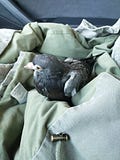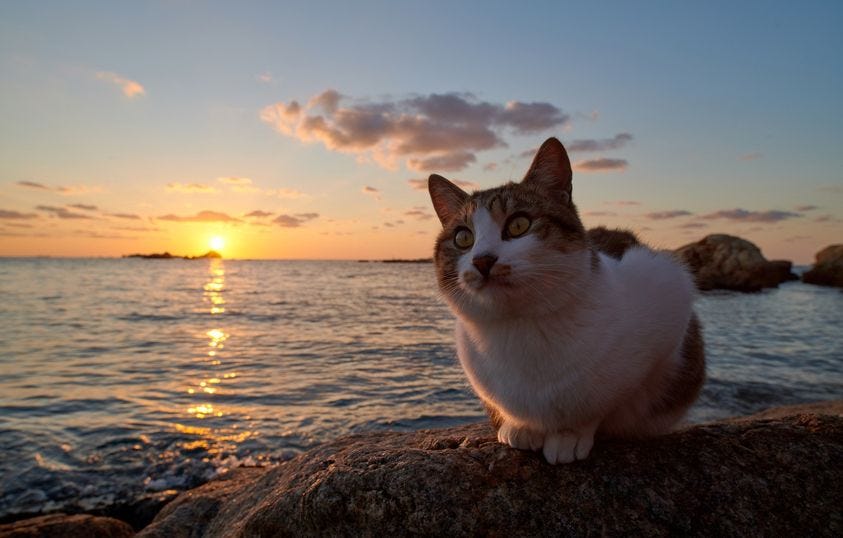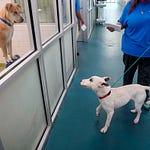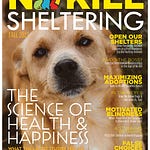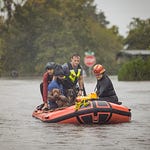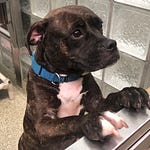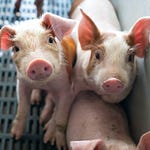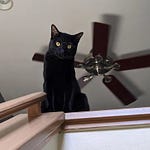
These are some of the stories making headlines in animal protection:
There are only a couple of counties left in Utah that still use the gas chamber to put animals to death. But they could be forced to dismantle them if SB 69, a bill that would ban the method, is passed by the legislature and signed by the governor. “There is no progressive sheltering agency of any scope or stature willing to philosophically embrace gas systems for the killing of any species of animals.” In addition, animals who are young, old, or have respiratory infections take longer to absorb the poisonous gas and therefore take longer to die, causing their suffering to be even more pronounced.
Meanwhile, other legislation being considered in Utah would overturn local bans on the sale of commercially-bred puppies and kittens in pet stores. If passed, it would undo progress in reducing the neglect and abuse of dogs and cats in puppy and kitten mills. Pet stores generally get their animals from breeding mills that engage in systematic neglect and abuse of animals, leaving severe emotional and physical scars on the victims. One in four former breeding dogs have significant health problems, are more likely to suffer from aggression, and many are psychologically and emotionally shut down, compulsively staring at nothing.
Miami-Dade’s cruel “pit bull” ban is one step closer to being overturned. “Dogs will be judged by behavior and not breed, according to a bill that won unanimous subcommittee approval… at its second hearing stop.” Banning dogs based on how they look is immoral. It is also ineffective. That’s not just my opinion; it’s science:
50% of dogs labeled as pit bulls lack DNA breed signatures of breeds commonly classified as pit bulls;
Dogs targeted for breed discriminatory laws are not more likely to bite, do not bite harder, and such bans do not result in fewer dog bites or bite-related hospitalization rates;
Enforcement of bans is expensive with no measurable impact on public safety; and,
Bans negatively impact surrounding communities and rescue groups who have to take on the burden for such regressive and selfish policies in order to save the lives of these dogs. “When a city has a breed-specific ban, good dogs die. It’s that simple.”
“Switzerland votes on Sunday whether to become the first country to completely ban medical testing on animals… More than 550,000 animals died in laboratory tests in 2020 in Switzerland... The figure includes 400,000 mice and rats, nearly 4,600 dogs, 1,500 cats and 1,600 horses. Primates, cows, pigs, fish and birds were also killed during and after experiments.” Unfortunately for the animals, it is not expected to pass.
A bill to turn Hawaii into a cat graveyard
When Australia announced that they would kill millions of cats, the vast majority of us were horrified. When they followed through on that threat, our horror was multiplied as they chose poisoning, one of the cruelest and most prolonged ways possible: causing anywhere from four to seven days of suffering before the cats finally succumb to either massive internal bleeding or suffocation. This long sickness period often includes abnormal breathing, diarrhea, shivering and trembling, external bleeding, confusion, lethargy, and spasms.
But now this cruelty has come to our shores. Rep. Patrick Branco has introduced HB 1987, a bill to poison all outdoor cats in Hawaii. In fact, Branco “looked to Australia” as his model for turning the Aloha state into a cat graveyard. In the Hawaiian language, “aloha” may mean love, affection, compassion, mercy, sympathy, pity, kindness, and grace. And a large number of people in Hawaii came out in opposition arguing that feeding cats toxic bait “does not mean aloha to me.” Thankfully, it did not mean aloha to legislators either. HB 1987 stalled in the House.
But Rep. Branco has indicated he will be back with another bill. And no matter what the evidence, he will not be swayed. His false, uneducated, and hypocritical statements promoting violent ideologies, claiming TNR doesn’t work, and championing aggravated animal cruelty betray that. What is fueling his sadistic fever dreams?
According to Branco, cats are “non-native” and must be killed, even though “non-native” and “invasive species” are the language of intolerance, based on an idea most of us have rejected in our treatment of our fellow human beings — that the value of a living being can be reduced merely to its place of ancestral origin. Indeed, people are “non-native” to Hawaii, too, and unlike cats, they cause most of the environmental harm impacting other animals. But to Branco, the rules do not apply to him. And therein lies the rub: as much as it pretends to be, Invasion Biology is not science, it is philosophy; and a morally repugnant one at that.
The past is prologue
Jennifer and I just published the fifth and final part of our podcast series, “Yesterday, Today, and Tomorrow,” our sweep of animal sheltering in the U.S.
Carl Sagan once said, “The visions we offer… shape the future. It matters what those visions are. Often they become self-fulfilling prophecies. Dreams are maps.” As we continue our work to make pound killing a thing of the past in every American community and then build upon that success to protect every animal, no matter the species, no matter the threat of harm, what will our map for the future look like? What roads will we take to do so?
There are groups which are advising shelters to close their doors, to stop taking in homeless and lost dogs and cats, to abandon adoptions in favor of leaving animals on the street, to employ antiquated benchmarks that obscure killing, and to be open by appointment only, eliminating transparency and allowing neglect and abuse to flourish out of public oversight. In short, they are portraying regression as progress, threatening not only future No Kill success, but the substantial gains our movement has already achieved.
And then there’s the more optimistic vision, the more humane vision, the one that aligns mission with deed by building a world in which humans and animals not only peacefully coexist, but mutually thrive. It is a vision in which our humane societies and SPCAs are not inessential, but indispensable. That’s the vision Jennifer and I offer in Part 5.
Food for thought

